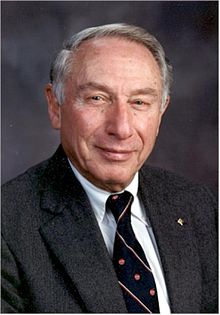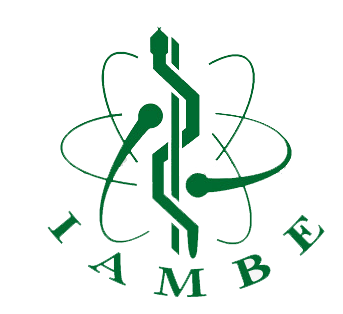LnRiLWZpZWxke21hcmdpbi1ib3R0b206MC43NmVtfS50Yi1maWVsZC0tbGVmdHt0ZXh0LWFsaWduOmxlZnR9LnRiLWZpZWxkLS1jZW50ZXJ7dGV4dC1hbGlnbjpjZW50ZXJ9LnRiLWZpZWxkLS1yaWdodHt0ZXh0LWFsaWduOnJpZ2h0fS50Yi1maWVsZF9fc2t5cGVfcHJldmlld3twYWRkaW5nOjEwcHggMjBweDtib3JkZXItcmFkaXVzOjNweDtjb2xvcjojZmZmO2JhY2tncm91bmQ6IzAwYWZlZTtkaXNwbGF5OmlubGluZS1ibG9ja311bC5nbGlkZV9fc2xpZGVze21hcmdpbjowfQ==
TW9udHNlcnJhdDo2MDAscmVndWxhciw1MDA=
LnRiLWZpZWxkW2RhdGEtdG9vbHNldC1ibG9ja3MtZmllbGQ9ImVjMWNjYjkwNWI1ZTBmMGM1Y2M3YjhlNzhhMjU5OWQxIl0geyBmb250LXNpemU6IDE0cHg7Zm9udC1mYW1pbHk6IE1vbnRzZXJyYXQ7Zm9udC13ZWlnaHQ6IHJlZ3VsYXI7IH0gIC50Yi1maWVsZFtkYXRhLXRvb2xzZXQtYmxvY2tzLWZpZWxkPSI2ZjczYjQzMWRlYjhlN2MzZDhmYTY3OTNiYWEyNzk0ZSJdIHsgZm9udC1zaXplOiAyMHB4O2ZvbnQtZmFtaWx5OiBNb250c2VycmF0O2ZvbnQtd2VpZ2h0OiA1MDA7IH0gIC50Yi1maWVsZFtkYXRhLXRvb2xzZXQtYmxvY2tzLWZpZWxkPSI1NzVjMDY5MGY2ZTFhYjlmYWMzMGM5MWJjMzZlYjZmYSJdIHsgZm9udC1zaXplOiAyMHB4O2ZvbnQtZmFtaWx5OiBNb250c2VycmF0O2ZvbnQtc3R5bGU6IGl0YWxpYztmb250LXdlaWdodDogcmVndWxhcjt0ZXh0LWFsaWduOiBsZWZ0OyB9ICAudGItZmllbGRbZGF0YS10b29sc2V0LWJsb2Nrcy1maWVsZD0iNjY1MjA4ZjdiZTc1MWU3MjkxYzNhNzI1YjY1YjdlYjciXSB7IGZvbnQtc2l6ZTogMzZweDtmb250LWZhbWlseTogTW9udHNlcnJhdDtmb250LXdlaWdodDogNjAwO2xpbmUtaGVpZ2h0OiA1MHB4OyB9ICAudGItaW1hZ2V7cG9zaXRpb246cmVsYXRpdmU7dHJhbnNpdGlvbjp0cmFuc2Zvcm0gMC4yNXMgZWFzZX0ud3AtYmxvY2staW1hZ2UgLnRiLWltYWdlLmFsaWduY2VudGVye21hcmdpbi1sZWZ0OmF1dG87bWFyZ2luLXJpZ2h0OmF1dG99LnRiLWltYWdlIGltZ3ttYXgtd2lkdGg6MTAwJTtoZWlnaHQ6YXV0bzt3aWR0aDphdXRvO3RyYW5zaXRpb246dHJhbnNmb3JtIDAuMjVzIGVhc2V9LnRiLWltYWdlIC50Yi1pbWFnZS1jYXB0aW9uLWZpdC10by1pbWFnZXtkaXNwbGF5OnRhYmxlfS50Yi1pbWFnZSAudGItaW1hZ2UtY2FwdGlvbi1maXQtdG8taW1hZ2UgLnRiLWltYWdlLWNhcHRpb257ZGlzcGxheTp0YWJsZS1jYXB0aW9uO2NhcHRpb24tc2lkZTpib3R0b219IC50Yi1pbWFnZVtkYXRhLXRvb2xzZXQtYmxvY2tzLWltYWdlPSI2NTEyMjIyNGJiNGRkZjhiMTlhMWVhMDFkZGQwNzU2ZCJdIHsgbWF4LXdpZHRoOiAxMDAlOyB9IC50Yi1pbWFnZVtkYXRhLXRvb2xzZXQtYmxvY2tzLWltYWdlPSI2NTEyMjIyNGJiNGRkZjhiMTlhMWVhMDFkZGQwNzU2ZCJdIGltZyB7IHBhZGRpbmctYm90dG9tOiA1MHB4O2JvcmRlcjogMHB4IHNvbGlkIHJnYmEoIDAsIDAsIDAsIDEgKTsgfSBAbWVkaWEgb25seSBzY3JlZW4gYW5kIChtYXgtd2lkdGg6IDc4MXB4KSB7ICAgICAudGItaW1hZ2V7cG9zaXRpb246cmVsYXRpdmU7dHJhbnNpdGlvbjp0cmFuc2Zvcm0gMC4yNXMgZWFzZX0ud3AtYmxvY2staW1hZ2UgLnRiLWltYWdlLmFsaWduY2VudGVye21hcmdpbi1sZWZ0OmF1dG87bWFyZ2luLXJpZ2h0OmF1dG99LnRiLWltYWdlIGltZ3ttYXgtd2lkdGg6MTAwJTtoZWlnaHQ6YXV0bzt3aWR0aDphdXRvO3RyYW5zaXRpb246dHJhbnNmb3JtIDAuMjVzIGVhc2V9LnRiLWltYWdlIC50Yi1pbWFnZS1jYXB0aW9uLWZpdC10by1pbWFnZXtkaXNwbGF5OnRhYmxlfS50Yi1pbWFnZSAudGItaW1hZ2UtY2FwdGlvbi1maXQtdG8taW1hZ2UgLnRiLWltYWdlLWNhcHRpb257ZGlzcGxheTp0YWJsZS1jYXB0aW9uO2NhcHRpb24tc2lkZTpib3R0b219IH0gQG1lZGlhIG9ubHkgc2NyZWVuIGFuZCAobWF4LXdpZHRoOiA1OTlweCkgeyAgICAgLnRiLWltYWdle3Bvc2l0aW9uOnJlbGF0aXZlO3RyYW5zaXRpb246dHJhbnNmb3JtIDAuMjVzIGVhc2V9LndwLWJsb2NrLWltYWdlIC50Yi1pbWFnZS5hbGlnbmNlbnRlcnttYXJnaW4tbGVmdDphdXRvO21hcmdpbi1yaWdodDphdXRvfS50Yi1pbWFnZSBpbWd7bWF4LXdpZHRoOjEwMCU7aGVpZ2h0OmF1dG87d2lkdGg6YXV0bzt0cmFuc2l0aW9uOnRyYW5zZm9ybSAwLjI1cyBlYXNlfS50Yi1pbWFnZSAudGItaW1hZ2UtY2FwdGlvbi1maXQtdG8taW1hZ2V7ZGlzcGxheTp0YWJsZX0udGItaW1hZ2UgLnRiLWltYWdlLWNhcHRpb24tZml0LXRvLWltYWdlIC50Yi1pbWFnZS1jYXB0aW9ue2Rpc3BsYXk6dGFibGUtY2FwdGlvbjtjYXB0aW9uLXNpZGU6Ym90dG9tfSB9IA==
Floyd Dunn
FF, FE, University of Illinois at Urbana-Champaign, USA
Deceased
TW9udHNlcnJhdDo2MDAscmVndWxhciw1MDA=
Floyd Dunn received his Ph.D. from the University of Illinois in 1956. He is a professor emeritus, having retired in 1995, in the departments of Electrical and Computer Engineering, of Molecular and Integrative Physiology, and in the Bioengineering and Biophysics Programs at UIUC and a full-time Beckman Institute faculty member in the Bioacoustics Research Laboratory. His fields of professional interest are ultrasound biophysics and bioengineering.
Honors and awards: Member, National Academy of Sciences; Member, National Academy of Engineering; Fellow and Past President, Acoustical Society of America; Fellow, AAAS; Fellow, American Institute of Ultrasound in Medicine; Fellow, Institute of Electrical and Electronics Engineers; Fellow, Institute of Acoustics, U.K.; Fellow, American Institute for Medical and Biological Engineering; Honorary member, Japan Society for Ultrasound in Medicine; American Cancer Society, Eleanor Roosevelt International Fellow; NIH Research Fellow; Fogarty International Fellow; Fulbright-Hays Senior Fellow; Japan Society for the Promotion of Science Fellow; Wm. J. Fry Memorial Award, American Institute of Ultrasound in Medicine; Silver Medal, Acoustical Society of America; Joseph H. Holmes Basic Science Pioneer Award, American Institute of Ultrasound in Medicine; Medal of Special Merit, Acoustical Society of Japan; and University Scholar, UIUC; and IEEE Engineering in Medicine and Biology Society Career Achievement Award.
Floyd Dunn’s work continues the approximately forty years of study in the field of bioultrasonics. Specifically, these studies deal with determination of the ultrasound propagation properties of living systems, viz., sound speed, absorption, attenuation, impedance, as functions of temperature, pressure, media composition; investigation of the physical mechanisms involved in producing reversible and irreversible changes in living systems by ultrasound, viz., thermal, cavitation, mechanical; toxicological aspects of ultrasound exposure; ultrasound metrology; and ultrasound microscopy. A portion of Dunn’s work is peripherally related to molecular nanostructures, one of the main research themes of the Beckman Institute.

